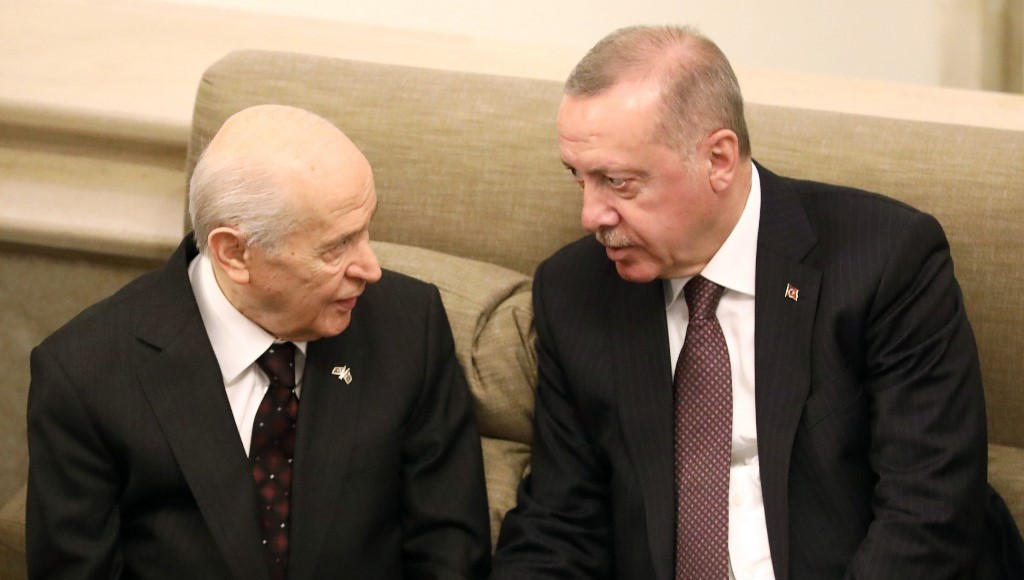Devlet Bahçeli, leader of the far-right Nationalist Movement Party (MHP), has confirmed a decision by his party and the ruling Justice and Development Party (AKP) to reduce Turkey’s election threshold to 7 percent, local media reported on Wednesday.
The 10 percent election threshold, which is much higher than thresholds in democratic nations, has been a subject of criticism for years for being anti-democratic and an obstacle barring small parties from entering parliament. It was enacted following a military coup in 1980 and has remained in place despite calls to lower it.
The AKP has so far ignored the calls, saying it would pave the way for the establishment of coalition governments, from which according to the party Turkey suffered much in the past.
Bahçeli on Wednesday said in a written statement that the Public Alliance, which refers to President Recep Tayyip Erdoğan’s cooperation with the MHP, had “sincere and well-intentioned” negotiations on the country’s electoral system and the election threshold.
Referring to recent comments by Erdoğan, Bahçeli added: “As a matter of fact, the statement put an end to the discussion regarding the [election] threshold, confirming the Public Alliance’s decision that it should be lowered to 7 percent.”
Erdoğan on Sunday told reporters that he was prepared to lower the election threshold to 7 percent upon receiving positive signals from the MHP, noting that the ruling AKP hadn’t yet received the final word from their ally on the percentage of Turkey’s election threshold.
The AKP’s change of attitude about the election threshold comes at a time when public surveys show support for the AKP and its election partner, the MHP, in a downward trend, falling to as low as 36.6 percent from more than 50 percent.
The AKP-MHP alliance received 54 percent of the nationwide vote in the 2018 general election.
The lowering of the election threshold is expected to benefit the MHP, whose public support is not adequate to push it over the current threshold.
The BBC’s Turkish service on Wednesday cited AKP sources as saying that the new amendments to the Election Law and the Political Parties Law will not change the requirement that political parties receive at least 3 percent of the vote to become eligible for treasury grants.
The sources also said the AKP-MHP alliance came up with a solution to prevent the transfer of lawmakers from one party to another before elections in a bid to secure a party’s participation in it.
If a political party has a group in parliament with 20 lawmakers, it will have the right to participate in the elections and present a presidential candidate, according to Turkish law.
Fifteen main opposition Republican People’s Party (CHP) lawmakers quit their party on April 22 and joined İYİ (Good) Party in a bid to secure the latter’s participation in the presidential and parliamentary elections on June 24, 2018. The MPs returned to the CHP on May 10, after their transfer had served its purpose.
The new amendments to the election law will prevent that. According to the proposed amendments, if a political party’s group in parliament includes MPs recently transferred from the other parties they were elected from, it won’t be considered eligible to participate in the elections even if they manage to form a group of 20.
The requirement that a political party finalize its organization in more than half the country’s cities and hold its first convention six months before the election date will remain unchanged, the sources told BBC Turkish.
